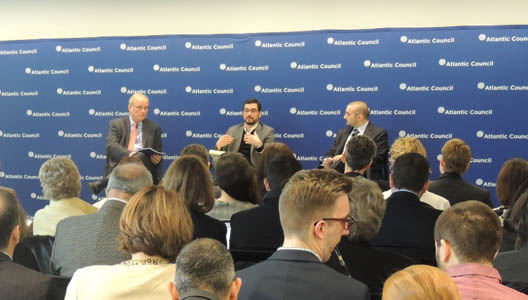 As the conflict in Syria enters its fourth year, US policy has consistently failed to achieve its stated object: a negotiated political transition based on the mutual consent of the regime and opposition. The United States and its Western allies have focused on summits and high-level diplomacy as the most effective means to that laudable end. This approach ignores an essential missing ingredient: an opposition able to coordinate different anti-regime forces, exercise agency on their behalf, and provide decent local governance, without which Syrians will continue to suffer and fight irrespective of whether the regime is overthrown.
As the conflict in Syria enters its fourth year, US policy has consistently failed to achieve its stated object: a negotiated political transition based on the mutual consent of the regime and opposition. The United States and its Western allies have focused on summits and high-level diplomacy as the most effective means to that laudable end. This approach ignores an essential missing ingredient: an opposition able to coordinate different anti-regime forces, exercise agency on their behalf, and provide decent local governance, without which Syrians will continue to suffer and fight irrespective of whether the regime is overthrown.
On Wednesday, March 5, 2014, the Rafik Hariri Center for the Middle East launched a new issue brief, “Zooming in on Syria: Adapting US Policy to Local Realities,” co-authored by fellow Faysal Itani and Nathaniel Rosenblatt, senior analyst for Caerus. The event featured commentary from the authors and was moderated by senior fellow Ambassador Frederic C. Hof.
The discussion began by reviewing the development of the conflict over its first three years, stressing that participants of the initial, non-violent phase—unlike their counterparts in the region’s other uprisings—lacked capacity and organization. When the peaceful protest eventually collapsed into violence, participants were unprepared for the harsh realities this presented.
Itani and Rosenblatt’s comments centered on two case studies presented in the report—failure of local governance in the cities of Binnish and Raqqa—emblematic of the failure of the opposition and the support provided by allies.
The discussion closed with recommendations advanced by Itani and Rosenblatt in their issue brief. They highlighted the need for the West to “zoom in” on the conflict in order to understand how Syrians are living and shaping the conflict; the economic, tribal; and sectarian realities; rebel group dynamics; and the relationships among rebel groups and between these groups and the regime. Without this granular approach, they argued that further negotiations will be at best useless and at worst harmful.
